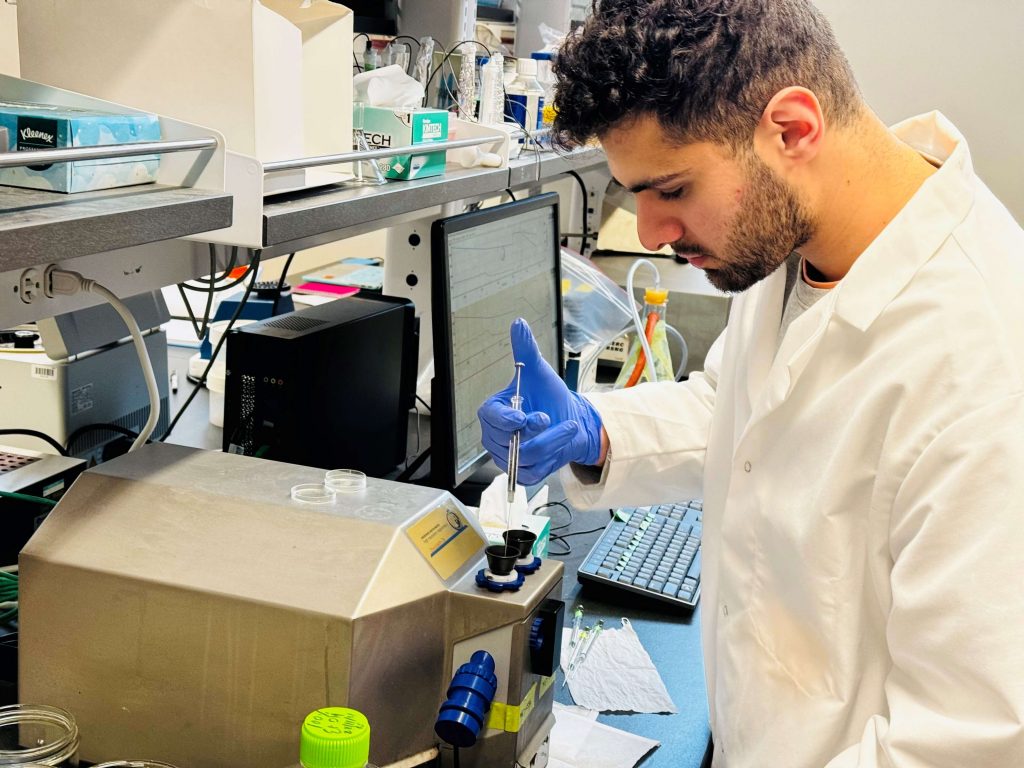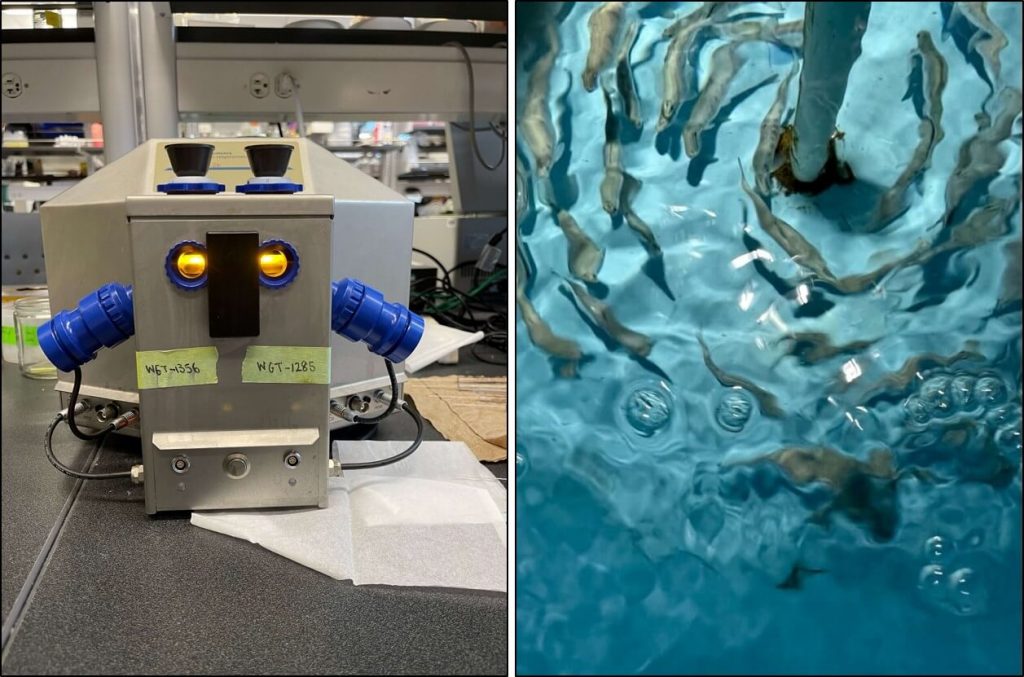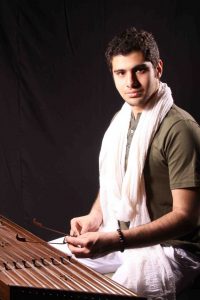
I’m originally from Iran and moved to Canada in 2017. I graduated with a bachelor’s degree in Biology in May 2024. During my time at university, I had the amazing opportunity to work in Dr. Jeffrey Richards’ lab, where I focused on the metabolic adaptation of Atlantic salmon. Thanks to the NSERC USRA award and a directed study, I was able to design and carry out my project on salmon muscle metabolism under the supervision of Dr. Benjamin Negrete. I was thrilled to receive second place at MURC 2024 for my oral presentation on this research.
What are you researching?
I explored how different light treatments—think long summer days versus short winter ones—affect salmon’s physiology, muscle growth, and metabolism. This has major implications for both ecosystems and the aquaculture industry. I get to use this amazing machine called OROBOROS, where I inject all sorts of interesting compounds—everything from poisons to fuels (carbs vs fat)—to see how the muscle mitochondria react. It’s a fascinating process of uncovering how the mitochondria react to different compounds under controlled conditions.

Why is this research important?
This research is critical because it helps us understand how fish adapt to environmental stress, which is vital for conservation efforts and making sustainable fishing practices possible. On a broader scale, it could give us deeper insights into muscle physiology, showing how muscles function under stress in general—something that could even have implications beyond aquatic life.
What has been most challenging about doing research?
The toughest part of research? Definitely when things don’t go as planned, which is more often than you’d think! It’s frustrating when results aren’t what you expect, but I’ve learned that resilience and creativity are key. Troubleshooting and problem-solving have become second nature to me!
How has your unique background influenced your research experience?
I started my academic journey with music, which might sound like an unusual path for a biologist. But music gave me a unique perspective—understanding rhythms and patterns helped me notice patterns in scientific data too. Plus, my experiences growing up in various countries like Iran, Germany, and Azerbaijan and later moving to Canada have given me a strong sense of perseverance and adaptability, which are crucial when you’re constantly dealing with the unknowns in research.
What advice would you give to other students considering doing a research project?
Embrace curiosity! Don’t be afraid to ask questions—even if they seem obvious or silly—and don’t shy away from mistakes. Research is like a puzzle, and every mistake is just a piece that brings you closer to solving it. Also, building strong relationships with mentors and peers is incredibly valuable—those connections can open doors to new opportunities and make the process even more rewarding.
What do you like to do in your spare time?
 In my spare time, I love playing music, especially the violin, drums, and traditional Persian instruments like the Setar and Santour (hammered dulcimer). I also enjoy tutoring STEM and music, as it allows me to connect with students and share my passion for education. Lastly, I have fun acting in student-led film projects! 🙂
In my spare time, I love playing music, especially the violin, drums, and traditional Persian instruments like the Setar and Santour (hammered dulcimer). I also enjoy tutoring STEM and music, as it allows me to connect with students and share my passion for education. Lastly, I have fun acting in student-led film projects! 🙂